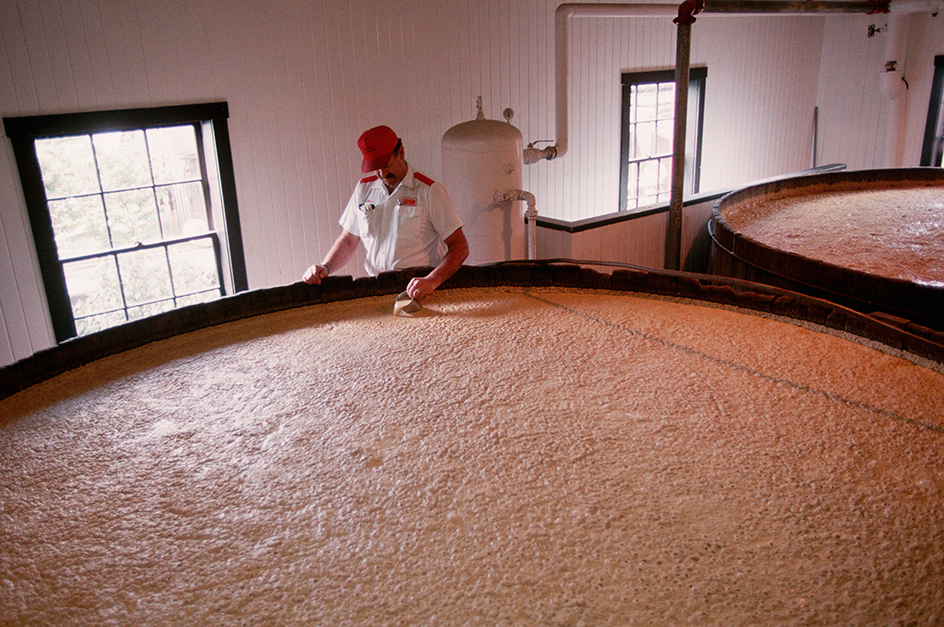Whiskey is an alcoholic beverage made from such grains as barley, corn, rye, and wheat. It is one of the leading alcoholic beverages in the United States.
Whiskey is made by a process called distilling. Distillers first grind the grains and cook them in water, forming a mash. This process changes the starch in the grain to sugar. Next, yeast is added and the mixture ferments. Fermentation changes the sugar to ethyl alcohol. The mash then is heated, giving off alcohol vapors. Distillers collect the vapors and cool them. The cooling vapors liquefy as whiskey.

Whiskey ages about 2 to 12 years in wooden barrels, where it develops flavor and an amber color. Before distillers bottle the whiskey, they add distilled water, diluting most beverages to between 80 and 100 proof. Proof signifies the percentage of alcohol in a beverage. In the United States, proof equals twice the amount of alcohol. Thus a beverage that is 100 proof is 50 percent alcohol.
Whiskeys differ according to the grain used, the proof of the beverage, and the aging conditions. The most common whiskeys made in the United States are blended whiskey, bourbon, Tennessee whiskey, and rye. Rye is made from a mash of mostly rye grains. Bourbon is made from a mash of mostly corn. Tennessee whiskey is similar to bourbon but is filtered through charcoal before aging. Blended whiskey is at least 20 percent straight whiskey, blended with other whiskeys or with pure ethyl alcohol and water. Straight whiskeys include bourbon and rye that have been stored at no more than 125 proof in charred new oak barrels for at least two years.
Imported whiskeys include Canadian whisky, Irish whiskey, and Scotch whisky. Canadian whisky is a blend made from corn, rye, wheat, and barley malt. Irish whiskey and Scotch whisky are made mostly from barley. Scotch whisky, also called Scotch, tastes smoky because it is made from malt that has been dried over peat fires.
